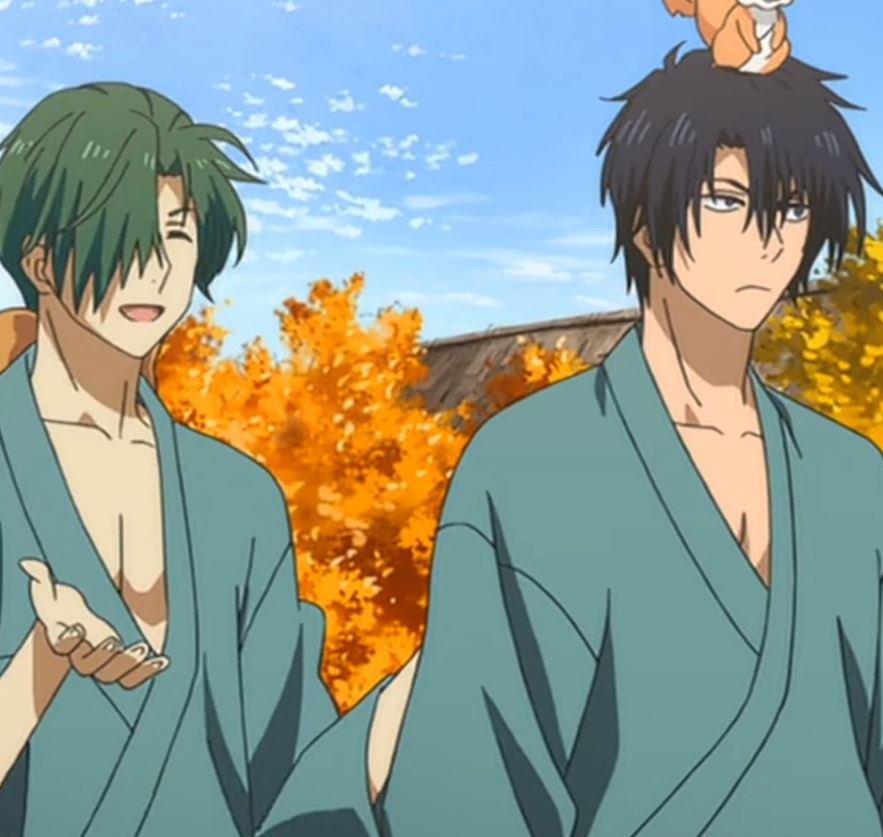
Junko Konno
Junko Konno |
|
|---|---|
 |
|
| Kanji | 紺野 純子 |
| Rōmaji | Konno Junko |
| Age: | 19 (As of 1983 onwards) |
| Birthday: | September 2, 1964 |
| Height: | 155 cm (5’1″) |
| Voice Actor | |
| Japanese | Maki Kawase |
| English | Amanda Lee |
Junko Konno (紺野 純子, Konno Junko), was a highly influential idol from the 1980s, credited with starting the idol boom of that era. She was one of Japan’s most beloved solo idols, known for her melodic voice and elegant performances. However, her career was tragically cut short by a plane crash. Years later, she was resurrected as a zombie and became a member of Franchouchou, where she is now known as “The Legendary Showa Idol” (伝説の昭和アイドル, Densetsu no Shōwa aidoru).
Background

Appearance in anime
Junko Konno was born during the Showa era, a time when solo idols dominated the Japanese music industry. Unlike modern idols, who often perform in groups, Junko was a solo artist, building her career through individual charm, talent, and an air of mystery. Her pure, refined performances and gentle stage presence won the hearts of fans across Japan, setting the standard for idols of her time.
Despite her fame, Junko lived a highly structured and controlled life, adhering to the strict rules of Showa-era idol culture. She never openly interacted with male fans, and her image was carefully maintained to preserve an idealized version of idol purity.
Her life ended in a tragic plane crash, which took away one of the most beloved voices of her generation. Years later, she was brought back to life as a zombie by Kotaro Tatsumi, who recruited her into Franchouchou, a modern-era idol group.
Appearance
Junko has shoulder-length, wavy silver hair with light blue undertones, reflecting her timeless elegance and status as a legendary Showa idol. Her soft blue eyes contribute to her calm and melancholic demeanor. As a zombie, her skin is noticeably paler, and her hair appears more faded compared to her appearance in life.
Her idol outfits typically blend classic and modern elements, symbolizing her transition from a solo Showa-era idol to a contemporary group performer. She often wears modest yet elegant dresses, staying true to her traditional aesthetic while adapting to Franchouchou’s evolving style.
Personality
Junko is reserved, serious, and soft-spoken, embodying the grace and professionalism of a traditional Showa-era idol. Unlike the more energetic and carefree members of Franchouchou, she is more introverted, often hesitating to express herself openly. She has a deep respect for idol culture but struggles with the drastic changes between the Showa and modern eras.
Initially, Junko finds it difficult to adapt to the group-based idol culture of the Reiwa era, as she was trained to perform alone. She struggles with teamwork, believing that idols should maintain a distant, perfect image rather than openly bonding with fans. Over time, she learns to embrace the modern idol philosophy, discovering that genuine connection and teamwork can be just as important as maintaining a perfect image.
Despite her initial hesitation, Junko is kind-hearted and deeply loyal. She cares deeply for her fellow Franchouchou members, even if she sometimes struggles to express her emotions.
Role in the Story
-
Struggling to Adapt to Modern Idol Culture
Junko’s journey is defined by her struggles with modern idol culture. When she first joins Franchouchou, she is overwhelmed by the casual and energetic nature of the group, as it contradicts everything she was taught as a Showa-era idol. She hesitates to embrace fan interactions, fearing that breaking the traditional “idol mystique” will ruin their appeal. -
Conflict with Ai Mizuno
Junko frequently clashes with Ai Mizuno, the former lead singer of Iron Frill, who represents the Heisei era idol culture. Ai’s modern, group-oriented approach to performing contrasts Junko’s solo-focused philosophy, leading to several disagreements. However, through their interactions, Junko gradually learns to embrace teamwork and adapts to the new era of idols. -
Finding Her Place in Franchouchou
As Franchouchou grows, Junko slowly opens up, forming stronger bonds with her teammates and accepting her role within the group. She retains her elegant, refined stage presence, but she also learns to connect with fans and fellow idols on a personal level. -
Facing Her Fears
One of Junko’s most defining moments occurs when Franchouchou faces a large, rowdy crowd at a concert. Terrified of audience engagement, she nearly refuses to perform. However, with encouragement from Ai and the others, she takes a leap of faith and fully embraces the modern idol experience, proving that even a legendary Showa idol can evolve.
Relationships
Ai Mizuno
Junko and Ai start off with strong ideological differences, as Ai comes from a newer era of idols where group dynamics and fan interaction are prioritized. Ai’s confidence and modern approach initially intimidate Junko, making her feel outdated and insecure. However, over time, Ai helps Junko adapt to contemporary idol culture, and the two develop a mutual respect for each other’s strengths.
Sakura Minamoto
Sakura serves as a source of encouragement for Junko, reminding her that idols should perform from the heart rather than worrying about maintaining a perfect image. Sakura’s optimism and warmth gradually help Junko break out of her shell and embrace her new life as a Franchouchou member.
Saki Nikaido
Saki often teases Junko for being too reserved, pushing her to be more expressive and assertive. Though their personalities are opposites, Saki’s unwavering confidence helps Junko find her own voice within Franchouchou.
Kotaro Tatsumi
Junko is skeptical of Kotaro at first, as his eccentric and unpredictable leadership style is vastly different from the strict, structured idol management she was used to. However, as she sees his genuine dedication to the group, she begins to trust his guidance.